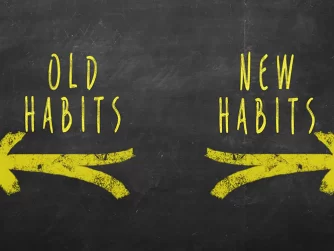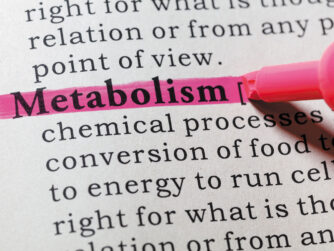Why Purpose Matters More Than Motivation
We’ve all had those moments—you wake up, your knees ache a little more than they used to, the scale hasn’t budged, and suddenly your motivation vanishes. If you’re over 40 and working on your health, you’ve probably learned that relying on fleeting motivation doesn’t cut it anymore.
But here’s the truth: motivation is a spark—purpose is the fuel.
Finding your “why”—your deep, personal reason for pursuing health—can be the game-changer you’ve been looking for. When the excitement wears off and life gets busy (because it always does), your purpose keeps you grounded. It becomes the anchor that keeps you steady through every storm.
What Is a Fitness “Why,” Exactly?
Your “why” isn’t about fitting into an old pair of jeans (though that might be part of it). It’s the deeper reason behind why you really want to get healthier.
Think about it like this:
- A goal is “I want to lose 20 pounds.”
- A why is “I want to be able to play with my grandkids without pain.”
- A goal is “I want to work out three times a week.”
- A why is “I want to manage my stress so I’m not short-tempered with my family.”
Your why is tied to who you are and the life you want to lead.
Why People Over 40 Need Purpose More Than Ever
As we age, our bodies change. Recovery takes longer, metabolism slows down, and responsibilities grow. That’s why fitness goals in your 40s, 50s, and beyond can’t just be about aesthetics.
Here’s the reality: Fitness is no longer optional—it’s foundational.
When you attach your health to something meaningful, like being active for your kids, reducing medication, or improving your mental health, you stop negotiating with yourself every time life gets hard. You make choices based on what matters, not just how you feel in the moment.
Pros of Anchoring to a Purpose
- Consistency Improves Dramatically
You’re no longer waiting to “feel like it.” You’re working toward something bigger. Whether it’s family, faith, freedom, or future—you show up because it matters. - You Avoid Burnout
Purpose-driven fitness doesn’t demand perfection. It encourages balance. You’re less likely to overtrain, crash diet, or throw in the towel after one bad week. - You Build Mental Resilience
When life throws curveballs—illness, job stress, aging parents—your why reminds you why you can’t afford to give up. It becomes your compass when motivation disappears. - It Makes Fitness Enjoyable Again
When you’re not constantly chasing a number on the scale, you can focus on enjoying movement, celebrating progress, and appreciating what your body can do.
Are There Downsides?
Sure—but they’re more like common pitfalls when your “why” isn’t well-defined.
- Vague Purpose Leads to Vague Effort
If your why is generic, like “to be healthier,” it won’t drive you. Go deeper. Ask, “Why do I want to be healthier?” Keep digging until you hit something personal. - Borrowed Purpose Isn’t Sustainable
Don’t chase someone else’s why. Your best friend might be training for a marathon, but maybe your why is to reduce joint pain or get off blood pressure meds. Make it yours. - Too Many Whys Can Be Overwhelming
Start with one. You can always add more later, but clarity brings focus. One strong reason is more powerful than a dozen half-hearted ones.
Real-Life Examples of a Strong Why
Let’s break this down with examples I’ve seen firsthand as a coach.
- Karen, 52, started strength training because she was afraid of falling and losing her independence. After 6 months, her balance improved, and so did her confidence.
- Mark, 46, was borderline diabetic. His “why” became staying alive to walk his daughter down the aisle. That vision kept him consistent through every early-morning walk and meal prep.
- Tammy, 59, just wanted to garden without back pain. That simple goal led her to a 3-day-a-week routine and better posture—and she’s still going strong two years later.
Your why doesn’t have to be dramatic. It just has to be real.
How to Find Your Why
Grab a notebook. Sit in a quiet space. Ask yourself:
- What does health mean to me—really?
- What would change in my life if I had more energy, mobility, or strength?
- Who in my life needs me to show up as my best self?
- What do I want the next 10, 20, 30 years to look like?
Write down your answers. Read them often. When you feel tired, skip the gym, or eat emotionally—read them again. Your why is your compass.
Putting Purpose Into Action
Once you find your why, let it shape your plan:
- Choose workouts you enjoy so you don’t dread showing up.
- Set realistic, long-term goals with short-term wins along the way.
- Make your environment support your why—keep your shoes by the door, prep meals, tell people your goal.
- Track progress beyond weight—track energy, mood, strength, confidence.
Purpose turns fitness into a lifestyle—not a phase.
Final Thoughts: What Will Drive You?
If you’ve ever asked, “Why can’t I stay consistent?” maybe the better question is, “Why am I doing this at all?”
Purpose doesn’t eliminate obstacles—but it gives you the strength to keep climbing them.
So, whether your why is to walk pain-free, stay off medication, feel proud in the mirror, or be the healthiest grandparent in the neighborhood—write it down. Hold it close. Let it guide you.
And remember, you’re not starting over—you’re starting stronger.







